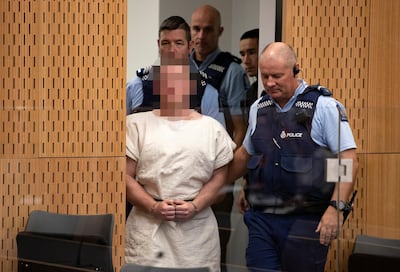On Friday, a far-right terrorist perpetrated the worst mass shooting in New Zealand's history. A total of 49 people were killed, and more than 48 injured, in attacks on two mosques in the city of Christchurch during Friday prayers. It was, as Prime Minister Jacinda Ardern said, "one of New Zealand's darkest days". The atrocity, live streamed on Facebook by its perpetrator will live on in the minds of New Zealanders for years to come. Above all, now is a time for quiet thought and empathy. Christchurch is a small, diverse community, but this is an attack on all of humanity. As such, it will affect people around the world. Hussein Al Umari, an Iraqi man raised in Abu Dhabi, is still missing. Meanwhile, UAE executive Adeeb Sami is recovering from his injuries after shielding his sons from the bullets. Leaders from across the globe have sent condolences, including Sheikh Mohamed bin Zayed, Crown Prince of Abu Dhabi and Deputy Supreme Commander of the Armed Forces, who tweeted: "We call on the world to fight hatred."
New Zealand recorded 35 murders in the entirety of 2017. That number has now been surpassed in one single day. The main suspect – a 28-year-old Australian man named Benton Tarrant – has already appeared in court and will be afforded a fair trial. New Zealand was targeted, Ms Ardern said, "because we represent diversity, kindness, compassion, a home for those who share our values, refuge for those who need it". These murders are a stark reminder of the rise of hate and intolerance around the world, and the failure of western governments and security services to wake up to the threat it poses. The focus on Islamic extremism among western counter-terrorism officials in recent decades has been all-consuming, which has allowed the far-right to metastasise both online and in the real world. Clearly, we can no longer afford to underestimate the toxic ideologies of white nationalists or the violent threat they pose. And yet, within hours of Friday's attack, Australian senator Fraser Anning had blamed "the immigration programme that allowed Muslim fanatics to migrate to New Zealand in the first place".

Extremist nationalism is one of the biggest challenges facing western societies today – particularly when it is espoused by senior lawmakers. Preventing similar events to those witnessed in Christchurch will require leaders and citizens to stop ignoring or indulging those on the fringes. Social media platforms such as Facebook and Twitter – where graphic footage of the massacre was widely circulated on Friday – should ensure that there is no place for violent rhetoric on their channels. And security services must be more dogged in their pursuit and monitoring of individuals who espouse such views. For now, though, all we can do is to send condolences to those who lost loved ones and family members, praise the brave officers who apprehended the suspect and mourn the 49 innocent people whose lives were so brutally cut short.

